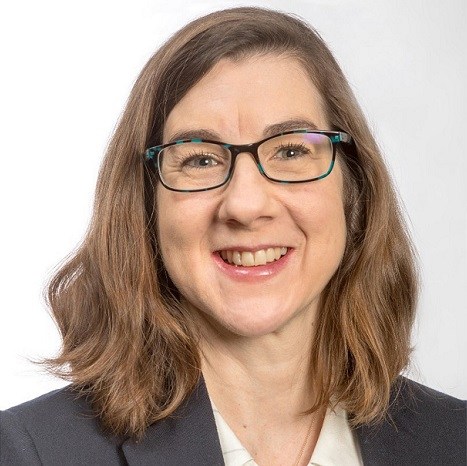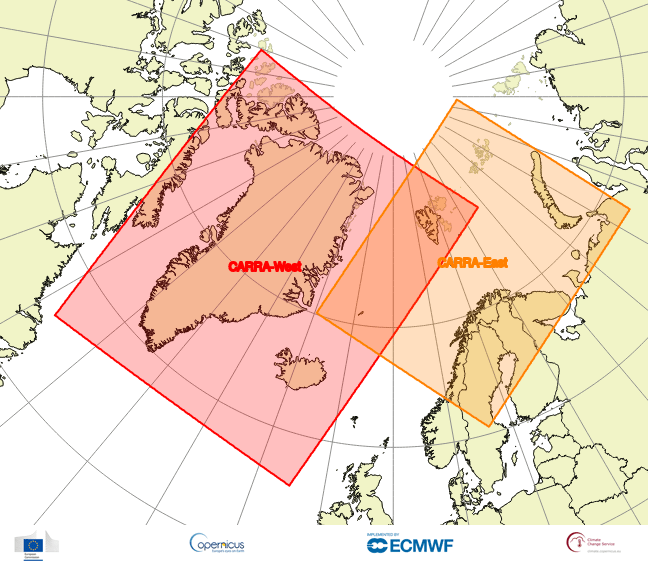“Reliable, accurate and open climate data from ECMWF and Copernicus gives Europe an opportunity to rise to the coming challenges of climate change, and secure the success of The Green Deal” - Samantha Burgess, Deputy Director of the Copernicus Climate Change Service (C3S).

Samantha Burgess
Samantha, we’re thrilled you’ll be joining The Brussels Times for our upcoming panel discussion on the state of the European Arctic on the 5 May. Can you tell us why this region is of particular concern?
The science is clear, the Arctic is one of the regions most impacted by the climate crisis. Although land areas are warming faster than the ocean, the Arctic region is heating faster than anywhere else. Sea ice is disappearing, snow cover is decreasing, and glaciers are retreating. The consequences will be felt most profoundly by Arctic communities and ecosystems, but there will be global echoes of this additional heat for the entire world.
Sea level rise reached its highest level on record in 2020, and the majority of this is attributed to glaciers and ice sheets losing mass and melting. Ice and snow reflect incoming sunlight — what is known as the albedo effect — so as it melts, darker ground is exposed which absorbs more energy from the sun, warming the planet further. A warmer atmosphere is also a wetter atmosphere, which ultimately leads to increasingly intense storms and greater flood risk. It is more important than ever for European countries, cities, businesses, to understand their climate vulnerability, so that more resilience can be built into our infrastructure. The best way to understand both present and future climate risk is reliable, accurate climate data.
We understand you recently joined C3S from WWF, where you were Head of Ocean Policy. What was it that interested you to work with ECMWF?
Climate change impacts all of society and as a scientist who’s spent many years focusing on the science-policy interface, the paramount importance of transparent and traceable data to inform policy cannot be overemphasised. A real understanding of climate risk should be the basis for many policy and economic decisions moving forward. C3S is implemented by ECMWF, which has a four-decade history of numerical weather prediction, and some of the most powerful supercomputers in Europe.
ECMWF is a significant contributor to climate change research, producing innovations such as the reanalysis technique—which stitches together the latest weather model with millions of climate observations from space, air, land and ocean from across time, to create a complete picture of how our climate has evolved over the last 70 years. C3S also provides projections for the climate of the coming decades. This kind of knowledge lets policymakers make informed decisions based on facts, not opinions, and helps business leaders get ahead of competitors.
C3S draws on satellite data from Copernicus, the European Commission’s flagship earth observation programme, in addition to in-situ data from sensors reporting from the oceans, land, and atmosphere around the world. Being part of a programme with a mission to make climate data accessible to everyone is an exciting opportunity to support a climate resilient future. Open and accurate climate data is a huge benefit to those in developing countries—often the hardest hit by climate change—who may not have access to viable climate information. In collaboration with partners throughout Europe, including national meteorological agencies, C3S is bridging the gap between science, and society.
Of course, the power of data comes from the understanding and knowledge derived from it. C3S not only has 1000s of terabytes of data freely available through the Climate Data Store, we also provide regular climate monitoring in the form of monthly climate bulletins, with insights into key climate variables, such as temperature, sea-ice and aspects of the water cycle. C3S also provides ‘deep dives’, such as the annual European State of the Climate Report–an essential overview of the past year’s climate, with a focus on Europe and the Arctic in addition to putting it in the global context of monitoring how trends change through time. This year’s report, looking at 2020, will be released next week on 22 April.
As awareness of environmental problems grows, there are an increasing number of sources for climate information. How can the ESOTC report stand out and help societies bolster climate resilience?
We know this is a global crisis, and there are other global reports that set this overall context. But it’s important to know exactly what’s going on in more detail closer to home. The ESOTC provides a detailed snapshot of Europe, but also explores components of the entire Earth system. In depth analysis on key weather events -- which are becoming more extreme and frequent as time goes on. This report offers a grounding for European decision makers.
You’re right there is a lot of data out there, but what’s important is that policies and business decisions are based on the right data. This means quality assurance, which is something we do extensively at C3S. All data and metadata is verified to ensure it is an accurate representation of what’s actually going on in the climate.
So we stay true to the science, but make sure it’s accessible, with practical and applicable insights. This helps across all sectors, from urban planning to agriculture. Imagine your infrastructure is capable of surviving a one-in-100 year flood. Well what happens if that becomes one-in-ten? Then you have to ask if your assets, or your cities are fit for purpose when faced with higher vulnerability and exposure to extreme weather.
Businesses need to plan strategically, and to make wise investment decisions. Many are starting to realise that understanding climate change and how their specific supply chain will be affected, can give them an edge over competitors. Having access to credible earth observation and climate data really helps to understand how to secure climate resilience.
With the European Green Deal, Europe is striving to become the first climate-neutral continent by 2050. Can you tell us how ECMWF and C3S will be supporting the EC in this goal?
There is an old adage – you cannot manage what you cannot measure, and this is very true for the climate. Unless we understand how our climate is changing and what risks that change may bring, we cannot plan for a climate resilient future. C3S provides free access to climate data from the past, the present and the future to support Europe to build this data into their climate adaptation strategies. An exciting development of the next phase of Copernicus is the new CO2 monitoring service with data from new Copernicus satellites, which will help verify global emissions of CO2 related to human activities, supporting action on climate change in line with the Paris Agreement. European progress to our net-zero future needs to be monitored, supported, and quantified, to make sure these important policy objectives are being reached.
C3S offers a wide range of tools, products, and data to help decision makers take informed choices in short and long-term planning, such as our 1.5°C app, a global temperature trend monitor. This allows anyone to see the current rate and predictions of global warming, tracking progress towards goals set under the Paris Agreement.
C3S is here to support, with climate data information and monitoring. The ESOTC and other state of the climate reports are a valuable benchmark for future assessments of the environment by European policymakers. Crucially, we translate vast amounts of accurate, reliable climate data into predictions and analysis of trends, whether they are local, regional or global.
The European Green deal has the ambition to give Europe the capacity to adapt and transform society to manage future climate risks. It will take a momentous effort from all European countries to drive down carbon emissions. C3S can play an important role in making that happen.
On 5 May, a high-level online panel discussion takes place on the topic of: The European State of the Climate: An open Arctic, why does it matter for Europe? Tune in to the livestream and be part of this important debate, and hear from key experts and decision makers sharing their insights.

